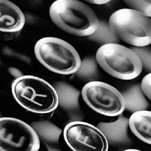the mechanics of writing
 there are a few things i would like to talk about in this section: boring writing, foregone conclusions, and writing what you know.
there are a few things i would like to talk about in this section: boring writing, foregone conclusions, and writing what you know.1) writing should never be boring. as a writer, if you find that you end up writing something that you find tedious or boring, but you have to write it because it fills a plot hole, you might want to revisit it. the reason being, if you find it boring to write, the reader will find it boring to read. this means that sometimes you need to change your plot to close the holes, or you need to find a more interesting or different way of writing the piece. i firmly believe that you shouldn't include anything in a book or story unless it fills the basic requirement of being entertaining to some degree. in the end, it has to keep the reader invested, and you don't want to write something that will draw the reader out by making them yawn or lose interest.
that being said, you need to write scenes sometimes that serve the purpose of furthering the plot or filling a hole; these scenes you may feel are necessary, but really, they aren't. i have often forsaken plot details because i myself couldn't make the scene interesting, or couldn't be bothered to make it interesting. for example, if i have a police investigation going on in the book, it always happens in the background; i never directly write about police procedures because i find them boring and really, i'm too lazy to do the research, so i always leave it in the background. the reader knows it is going on, but it's just not that important really until the outcome. what's more important and more interesting to me is how the characters behave. for example, in my latest book, there is a terrorist organization, but i never bother to write about any investigation or anything like that; you know it is going on, to stop these guys. it's just not that important to me. what is more important is how the characters react in the wake of the terorrism. their fears, their anxieties, their loves and losses.
2) the ending should never be a foregone conclusion. that is not to say that you need to have surprise endings all the time; it's just that even if the ending is a no-brainer, the reader should still feel like there is the possibility of something more. and really, should should be giving the reader something more by this time. after all, it is 2006; today's readers are a little smarter so you need to be able to provide some sort of insight at least by the time your conclusion comes around. in my case, i like to change things up all the time. usually 2/3rds of any book i write will go one way, and then the last third will go a completely different way, yet still feel a part of the book and it will not feel forced or contrived. by the end of the book, the story will have come fullcircle. at least, that is the goal. to this date, the best comments that i have recieved of anything that i have written, are the ones where the reader has said that they wanted to see how the book ended.
3) writing what you know is always best. even when writing a genre spy thriller, if you can inject bits and pieces of your personal life into it, the book will be much better because of it. by injecting pesonal bits, you are personally investing into the book. it won't be just another book for you; it will be something important to you, and therefore it will resonate more with the readers. believe me, it works. in my case, this current book that i am writing, formerly called cooler than the millions, was lacking a lot in the personal department. so i had to scrap most of it. it just wasn't working. however, i started inserting parts of my own life into it, much like i did for my previous books and it started working much better. it read better to me. it felt better to me. as a result, the whole dynamic of the book has changed to the point where i have had to change the title to it simply being a working title, because i'm sure it will change again by the time the book is finished.
one of the things i did to make the book more pesonal, was basically model one of the characters, the female lead, sean, on a girl i knew and was very much nearly in love with. i say nearly, because she never gave me the chance to realize the potential of what a possible relationship with her could have been like. let's just say that i would have done anything for her. so i based sean on her, and the result is much better. yeah, there are lots of things the character does and gets into that this real life girl would never get herself into, but that's not the point; the point is to blend a bit of fact into fiction, which results in a much more blended character portrait. did it hurt to revisit these feelings? yes. was it worth it? i think so. not only has sean's character changed because of it, but so has the character of john and the way his relationship is with her, as well as the whole second half of the book. i ended up using lots of personal things, such as pretty much word for word a voicemail she left me one time, or conversations we've had together. does it mean anything to the reader? probably not. does it mean something to me? definitely. and this effects the whole book, which hopefully in turn effects the reader in a positive way.
at first i was going to do a very cold, realpolitik book (influenced heavily by the 1980's), however, now that sean is basically this girl i had intense feelings for, the whole book has taken on a warmth to the second half that wasn't originally there. i realized that despite it all, my feelings for this girl have changed. at the time i was left cold and bitter, but as time passed by, despite the soreness that is still there, i now have a genuine warmth and good will towards her. this means the book has taken on some incredibly warm moments and a genuinely good ending. however, like all the endings for my books, it totally depends on how you read the book. for example, some who read desert sessions felt the ending was really depressing, while others saw it as a bit positive. personally, i wrote the book with a very neutral ending which totally fit the main character. this book, however, should leave some readers even more confused, while others completely firm in their interpretation of the book. hopefully it will work out well. in the end, for good or ill, this girl has become my muse. i don't know if she'll be flattered or annoyed at my using her likeness, but at this point, it doesn't matter, because as a writer, you sort of end up using everything and anything in your arsenal. sometimes that means raiding your friends and neighbors for inspiration. hopefully, though, in the end, you do them justice.
is it a bit dangerous to make it so personal? yes. you're leaving yourself open to being attacked. not only that, but you also leave yourself open to those previous feelings you had that you may have locked away, but now must relive them. but as far as suffering goes for art's sake, i'd say that's a pretty small contribution compared to the actual suffering in the world. you just have to have perspective and believe that what you have to say is important enough to say. after all, we're not talking about prison time or persecution of any sort; we're just talking about a little bit of heart-ache, which i believe benefits art, whatever kind it is.
here is a little section i wrote of john looking upon sean for the first time. it is, to my recollection, the most accurate physical and emotional representation of this girl and what i saw in her the first few moments of knowing her. i shall actually be putting up the first dozen or so pages of the book in a while once i get further into the writing.
He watches her, Sean, moving amongst the crowd smoothly, consistently. As if on ice. He watches the expressions on her face, or lack there of sometimes; how she could seem a bit cold at times, expressionless. Her finely sculpted cheek bones, her frosty blue eyes that would examine you lazily from under finely plucked eyebrows, razor thin. Her blank looks made you feel she was indifferent to you; stuck up. Like you didn’t matter. Non-existent. But then there would be that moment when all of a sudden there is a burst of expression and affection in her face, how she’d laugh and those fine eyebrows would arch upward and her eyes would emote all that she is, burning away the frost. If only for a brief moment. And how confident she seemed; to know everything at such a young age. How despite some extra weight in certain areas, she is not self conscious at all. Like she is in complete ownership of every square inch of her flesh.
she seems like a stuck-up, cold girl, right? well, that's because she often did come across like that, but as i wrote, there was an incredible warmth to her that would bubble up on rare occassions. and here is another section where john is thinking about sean. he's thinking about her and says how he was floored when he first saw her, which is very true. first time i saw her, when i walked into the room, for the first two hours, i didn't know where i was, what i was doing, or where i was going. completely floored me. the goal here is to portray those feelings, those emotions that a regular guy would feel towards the girl of his dreams: the lust, the desire, all of it. and here, john recollects this feeling as if from a dream:
And as John lies there, his thoughts always eventually turn to her. Her strawberry blond hair. Gravity tugging at her large tits as she bends over. Her heart-shaped ass spreading. Pieces of her. Like an amputee jigsaw puzzle. And he thinks of how hard she is. A diamond. Sometimes she shines and sometimes she glimmers. But she’s almost always cold, built like ice, like frozen, like less than zero. It’s frustrating enough to ignite your skull. Woosh. But giving up is not an option. That’s the problem with desire. It endures. Outlasting even hope. He says slowly: The first time I saw her… I was floored.
+Mini.jpg)


|